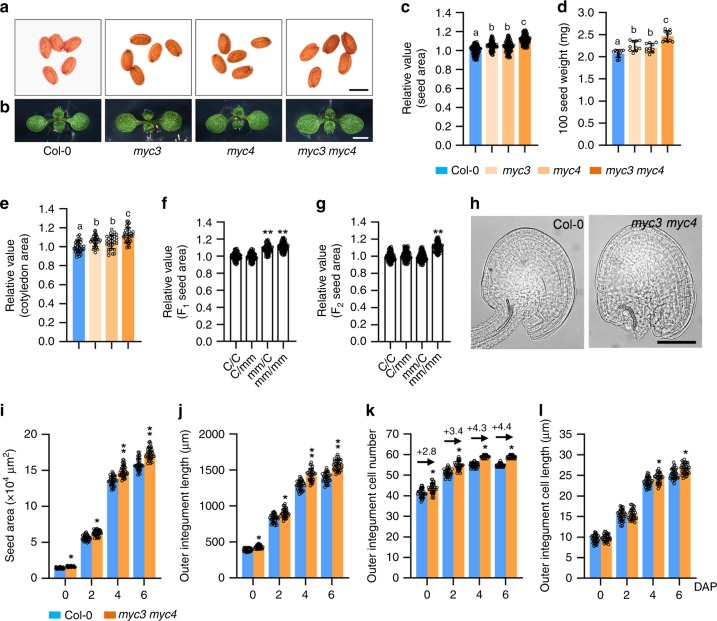Fig. 3. MYC3 and MYC4 act maternally to control seed development.
a, b The seeds (a) and 8-day-old seedlings (b) of Col-0, myc3, myc4, and myc3 myc4. c–e The relative seed area (c, n = 100), 100 seed weight (d, n = 10), and cotyledon area (e, n = 30) of Col-0, myc3, myc4 and myc3 myc4. Seeds from the third to seventh silique on the stem of six plants were used for analysis. Cotyledons from the 8-day-old seedlings were used for analysis. f, g The relative area of F1 seeds (f) and F2 seeds (g) from the Col-0/Col-0 (C/C), Col-0/myc3 myc4 (C/mm), myc3 myc4/Col-0 (mm/C), and myc3 myc4/myc3 myc4 (mm/mm) plants (n = 100). h Ovules of Col-0 and myc3 myc4 plants at 0 DAP (days after pollination). i–l The seed area (i), outer integument length (j), outer integument cell number (k), and outer integument cell length (l) of Col-0 and myc3 myc4 plants at 0, 2, 4, and 6 DAP (n = 33). Ovules and seeds from six siliques, which were from the fourth silique on the stem of six plants, were used for analysis. Scale bars, 0.5 mm (a), 0.2 cm (b), and 50 μm (h). Error bars represent ±SE. Different lowercase letters above the columns indicate the significant difference among different groups, one-way ANOVA P-values: P < 0.05. * indicates significant difference from the Col-0, one-way ANOVA P-values: *P < 0.05 and **P < 0.01.

